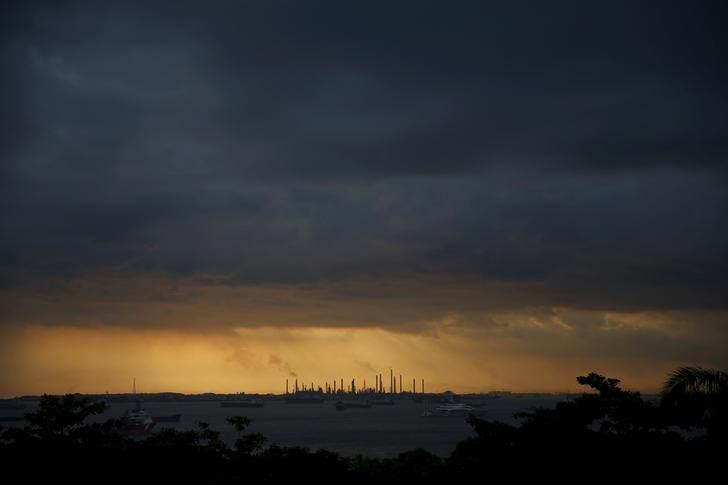By Gina Lee
Investing.com – Oil was down on Friday morning in Asia, retreating at the end of a very volatile week. However, the probability of extra supply from Iran returning to the market countered fears of a possible Russian invasion of Ukraine.
Brent oil futures fell 0.71% to $92.31 by 10:55 PM ET (3:55 AM GMT) following a 1.9% fall during the previous session. WTI futures fell 0.86% to $90.97 having slid 2% in the previous session. Both Brent and WTI futures were set for their first weekly fall in nine weeks, after hitting their highest points since September 2014 earlier in the month.
Negotiations to revive Iran’s 2015 nuclear agreement continue to progress, with a draft accord outlining a sequence of steps that would eventually lead to granting waivers on oil sanctions taking shape. Although the deal would bring about 1 million barrels a day of oil back to the market, the timing remains unclear.
"Nevertheless, the specter of a potential 1 million barrels per day hitting the oil market saw Brent crude oil prices come under pressure," ANZ Research analysts said in a note.
However, other investors do not expect prices to fall much in the near term. This expectation comes as Iran could add supply to the global market and the Organization of the Petroleum Exporting Countries and allies (OPEC+) continually struggles to meet production targets.
"Oil markets are vulnerable to supply disruptions given global oil stockpiles are tracking near seven‑year lows and as OPEC+ spare capacity comes into question given disappointing OPEC+ supply growth," Commonwealth Bank (CBA) analyst Vivek Dhar said in a note.
With air travel and road traffic picking up and increasing fuel demand, Brent futures could hold in the $90 to $100 a barrel range in the short term and top $100 "quite easily" if tensions escalate between Russia and Ukraine, according to CBA.
U.S. President Joe Biden is set to host a call on the Ukraine crisis later in the day. Leaders from Canada, France, Germany, Italy, Poland, Romania, the U.K., the European Union, and the North Atlantic Treaty Organization (NATO), according to the office of Canadian Prime Minister Justin Trudeau.
